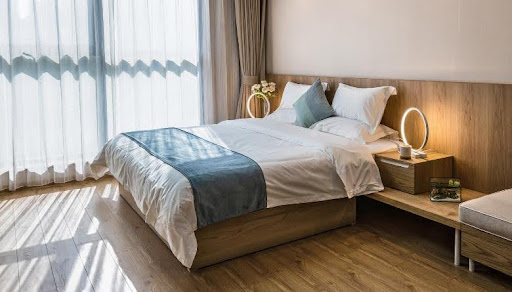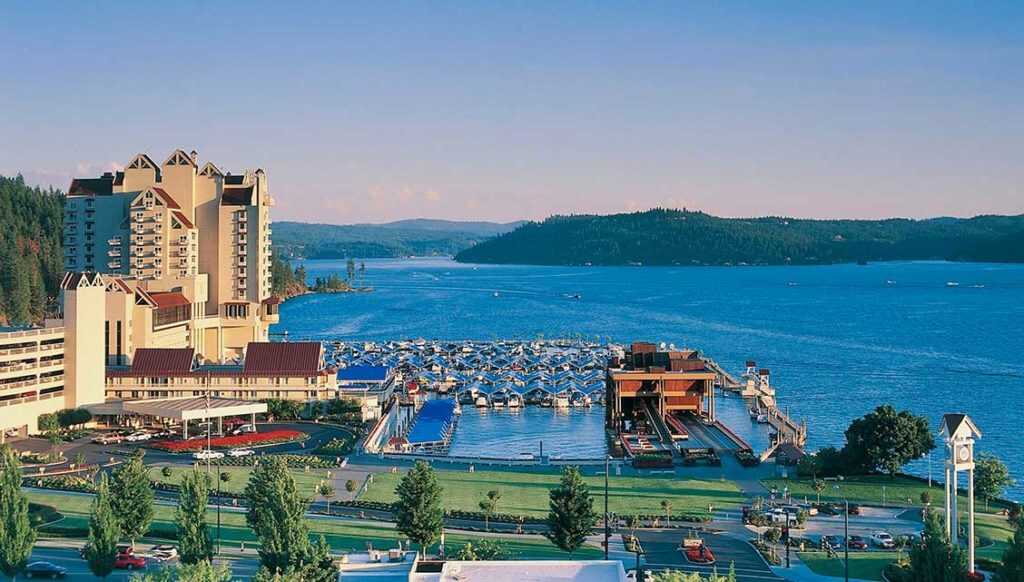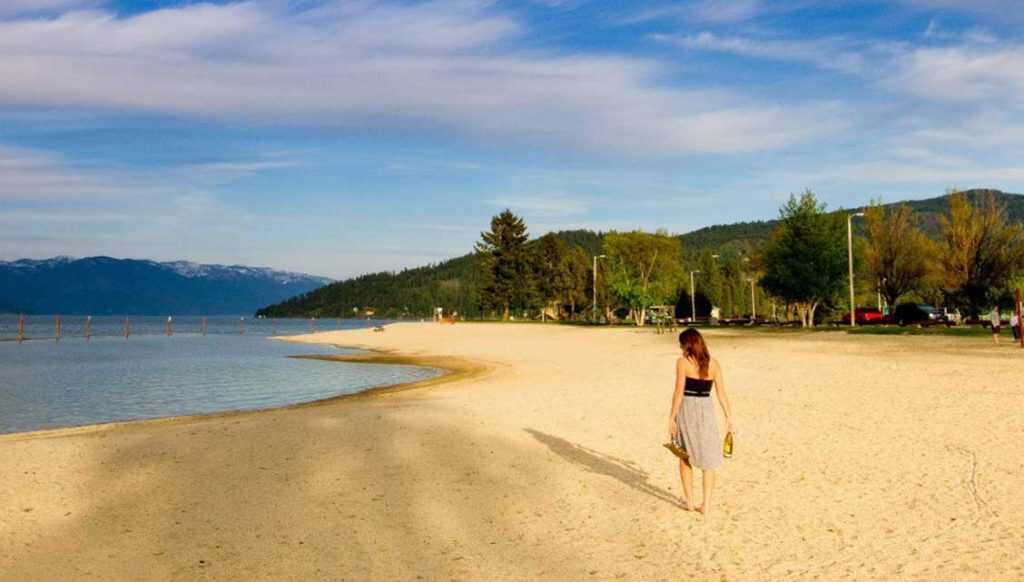Turning your home into an Airbnb can seem daunting, but it’s a popular way to earn extra income. In 2021, over four million hosts welcomed guests through the platform. This guide will walk you through making your house guest-ready and set you up for hosting success.
Let’s begin your Airbnb journey!
Key Takeaways
- Research local laws and obtain the necessary permits or licenses before listing your house on Airbnb to avoid fines.
- Take high – quality photos of your house, highlighting special features and nearby attractions to attract guests.
- Set competitive rates for your rental by analyzing market demand and what similar listings charge.
- Implement a simple check – in process and ensure your home is clean with quality amenities to enhance guest experience.
- Use a channel manager to synchronize bookings across platforms, encouraging positive reviews for better visibility.
Elevate Your Rental Game
Thinking about turning your house into an Airbnb but unsure about property valuation or where to list it? Our Vacation Rental & Property Management services are here to guide you. Reach out now to enhance your property’s earning potential!
Assessing if Your Space is a Good Fit for Airbnb
Before diving into the world of Airbnb hosting, it’s important to assess whether your space is a good fit for this type of rental. Consider legalities, location, competitors in the area, and who your target customers might be.
This will set the foundation for a successful Airbnb venture.
Legal Considerations for Airbnb Hosts
Understanding the legal requirements for becoming an Airbnb host is crucial. Check your city’s laws on short term rentals before listing your house or private room. You may need a permit or license, and not following these rules could result in fines.
Some areas have restrictions on how many days per year you can rent out your space, so it’s important to know these regulations.
Additionally, review the terms of your lease or homeowners association (HOA) if applicable. They might prohibit vacation rentals entirely or require that you get permission first. Make sure to get liability insurance to protect yourself from any property damage or accidents that could happen during a guest’s stay.
This ensures both you and your future Airbnb guests will be covered under unforeseen circumstances.
Choosing the Perfect Location for Your Airbnb Rental
Having confirmed the legal aspects of listing your property, focus now shifts to the importance of location for your Airbnb rental. A prime spot can set you apart from other hosts, attracting more guests eager to explore local attractions or attend events.
Take a close look at what makes your area appealing—be it scenic views, proximity to downtown areas, or unique neighborhood charm—and highlight these features in your Airbnb listing.
Consider also how accessible your house is for travelers. Ensure that details about public transportation, parking availability, and distance from airports or major highways are clear in your listing description.
Think like a potential guest: they want a convenient and attractive starting point for their adventures. Use real estate photography to showcase not just the inside of your home but also the surrounding environment which often entices first guests looking forward to experiencing everything that setting has to offer.
Analyzing the Competition: Tips to Stand Out
Knowing your competition is key to thriving as an Airbnb host. Analyze other Airbnb listings in your area to determine how you can stand out.
- Scope out the competition by searching for properties similar to your own house or guest rooms. Look at their listing title, rates, and what makes them appealing.
- Identify unique selling points (USPs) of competing Airbnb hosts. Do they offer a private bath, or boast a balcony with a view? Consider what you can provide that they don’t.
- Read reviews of competitor listings to understand guests’ likes and dislikes. Use this insight to tailor your own Airbnb property.
- Monitor the occupancy rates of nearby rentals. This tells you when demand is high and can guide you on setting your nightly rates.
- Compare amenities offered by other short-term tenants in the area. If many hosts are providing complimentary Wi-Fi, think about adding something extra like a coffee machine or free parking.
- Take note of how often new host profiles emerge in your location. This could affect the level of attention your spare room receives over time.
- Observe the interaction between potential guests and competitors through their listing’s Q&A section. Efficient communication can be a strong point for you as a host.
- Assess whether competitors market their space as suitable for specific property use like work trips or family vacations. Adapt yours to meet unfulfilled needs in these areas.
- Evaluate the quality of competitors’ photos; consider hiring a professional photographer if necessary to make your space more attractive.
- Study their house rules thoroughly. It’s important not only to enforce but also possibly create more flexible guest guidelines for your own place.
Identifying Your Target Guests for Airbnb Success
When considering target customers for your Airbnb rental, you need to evaluate the type of guests who would be interested in staying at your property. Here are some potential target customers to focus on:
- Business travelers: Individuals in town for work events, conferences, or meetings may seek out comfortable and convenient accommodations.
- Tourists: People traveling for leisure who want to experience the local culture and attractions.
- Families: Offering a family-friendly space can attract guests looking for a comfortable and safe environment for their loved ones.
- Extended stay guests: Those seeking accommodation for longer periods such as individuals relocating or working on extended projects.
Setting Up Your Airbnb Account
Write a compelling and detailed description of your space, upload high-quality photos, set competitive rates, and manage your availability calendar to start hosting on Airbnb. Ready to maximize your rental potential? Keep reading for more tips!
Writing a Descriptive Listing
Craft a compelling listing that showcases your space’s unique features and amenities to attract potential guests. Be descriptive in highlighting the key selling points of your property, from the open-concept kitchen to the cozy backyard patio.
Emphasize any special touches or benefits, such as a convenient location near popular attractions or access to public transportation. By incorporating relevant keywords like “personal items” and “entire home,” you can optimize your listing for search engines, increasing visibility within Airbnb’s platform.
Utilize concise and engaging language to paint a vivid picture of what it’s like to stay at your property. Highlight any standout features that set your space apart from others in the area, using active voice sentences that create a sense of excitement and anticipation for potential guests.
Adding Quality Photos
High-quality photos are essential for attracting potential guests to your Airbnb listing. Clear, well-lit images of each room and important features like the kitchen, bathroom, and outdoor spaces can showcase your property in the best possible light.
Make sure to highlight any unique selling points such as a beautiful view or stylish interior decor. Utilizing professional photography services may be worth the investment to ensure that your listing stands out among competitors.
Furthermore, staging each area with tasteful decor and ensuring a clutter-free environment can greatly enhance the visual appeal of your property. Taking photographs during daylight hours and editing them to enhance brightness and clarity can further improve their quality, catching the eye of potential customers searching for their next vacation rental.
Setting Rates
When setting rates for your Airbnb, consider the local market demand and your property’s unique features. Research similar listings in your area to determine competitive pricing. Take into account factors such as location, amenities, and guest capacity to ensure your rates are attractive yet profitable.
Consider offering discounts for longer stays or peak seasons to entice potential guests. Adjusting rates based on demand can help maximize occupancy while maintaining a steady income flow.
Additionally, offering promotional rates for first-time guests can attract positive attention and encourage repeat bookings. Regularly reviewing and adjusting your rates based on market trends is essential to stay competitive and optimize revenue potential.
Managing Your Calendar
Keep your calendar up to date to avoid double bookings and ensure a seamless guest experience. Regularly review upcoming reservations, block off dates for maintenance, and adjust rates for peak seasons or special events.
Utilize the Airbnb calendar function to set specific check-in and check-out times, giving you control over when guests can arrive at your property.
Sync your Airbnb calendar with other booking platforms through a channel manager to prevent overlapping reservations across different websites. This way, you can effectively manage all your listings from one centralized platform while avoiding any scheduling conflicts.
Creating an Unforgettable Guest Experience
Ensure a smooth check-in process for your guests by investing in a keyless entry system. Provide quality amenities such as fresh linens, toiletries, and kitchen essentials to make their stay comfortable and enjoyable.
Keep your home clean and tidy to leave a lasting impression on your guests.
Investing in a Good Check-in Process
Investing in a good check-in process is crucial for ensuring a smooth guest arrival and positive first impression. Consider the following:
- Implement a self-check-in system using smart locks or keypads to provide guests with seamless access.
- Create a detailed welcome guide that includes house rules, Wi – Fi information, and local recommendations to enhance the guest experience.
- Utilize digital communication channels to send pre – arrival messages and instructions, ensuring clear communication with guests.
- Offer flexible check – in times to accommodate guests’ travel schedules and improve overall satisfaction.
- Train your co-host or property manager on the check-in process to ensure consistency and reliability.
Providing Quality Amenities
After ensuring a seamless check-in process, the next step is to focus on providing quality amenities for your Airbnb guests. Here are important measures to consider:
- Offer comfortable bedding and fresh linens, ensuring a cozy and restful stay for your guests.
- Stock the bathroom with essential toiletries such as shampoo, conditioner, soap, and toilet paper.
- Equip the kitchen with cooking basics like pots, pans, utensils, and basic pantry items.
- Provide entertainment options; consider including a smart TV, board games, or books for relaxation.
- Enhance comfort with thoughtful extras like extra blankets, pillows, and towels.
- Consider additional amenities such as laundry facilities or access to a pool or gym if available in your property.
Ensuring a Clean and Tidy Home
To ensure a clean and tidy home for your Airbnb guests, follow these steps:
- Clean all surfaces, including countertops, tables, and floors, with high – quality cleaning products.
- Wash linens and towels after each guest stay to provide fresh and hygienic bedding.
- Vacuum carpets and rugs to remove any dirt or debris and keep the space looking tidy.
- Dust furniture and decor regularly to maintain a clean and inviting atmosphere.
- Empty trash cans and replace liners to keep the home smelling fresh and clean.
Protecting Your Investment
Understanding the legal and insurance aspects, utilizing a channel manager, encouraging positive reviews, and future-proofing your rental are essential steps to safeguarding your investment in Airbnb.
Read on to learn more about protecting your space for short term tenants.
Understanding the Legal and Insurance Aspects
To protect your investment and avoid potential legal issues, it is crucial to understand the legal and insurance aspects of hosting on Airbnb. Familiarize yourself with local laws and regulations regarding short-term rentals to ensure compliance.
Additionally, consider obtaining appropriate insurance coverage that specifically caters to short-term tenants. Protecting your property and personal belongings should be a top priority while you generate extra cash from your primary residence.
Furthermore, utilizing a channel manager can streamline the process of managing multiple bookings across different platforms, ensuring efficiency and preventing overbooking. Encouraging positive reviews from satisfied guests can also enhance your reputation as a host in the vacation rental business industry.
Utilizing a Channel Manager
To maximize your rental property’s visibility across different online platforms, it’s essential to utilize a channel manager. By leveraging this tool, you can seamlessly synchronize your property listings, availability, and rates on multiple vacation rental websites like Airbnb, HomeAway, VRBO, and more.
This streamlines the management process and ensures that potential guests can find your property across various booking channels easily.
Channel managers also help in avoiding double bookings by automatically updating your calendar whenever a guest makes a reservation on any connected platform. This not only saves time but also enhances the overall guest experience by providing accurate availability information.
Encouraging Positive Reviews
To maximize positive reviews, provide excellent customer service and ensure a seamless guest experience. Respond promptly to inquiries, be accommodating with requests, and go above and beyond to make guests feel welcome.
Enhance your Airbnb rental with personal touches and thoughtful amenities that leave a lasting impression on your guests, motivating them to leave glowing reviews.
Engage with your guests throughout their stay, addressing any concerns promptly and demonstrating genuine care for their comfort. Encourage feedback from guests upon check-out through personalized follow-up messages expressing gratitude for their stay.
Future-Proofing Your Rental
To maximize your long-term success as an Airbnb host, it’s essential to stay ahead of the game by future-proofing your rental property. One way to achieve this is by keeping up with market trends and constantly updating your amenities and decor to meet changing guest expectations.
Staying adaptable to shifts in technology, such as incorporating smart home devices or offering high-speed internet, can also help ensure that your rental remains appealing to a wide range of guests.
Another critical aspect of future-proofing your rental is maintaining flexibility in pricing strategies. Keep an eye on fluctuations in demand and adjust your rates accordingly to remain competitive in the market while maximizing potential earnings.
By staying attuned to industry developments and continuously refining your approach, you can position yourself for sustained success as an Airbnb host.
Conclusion
In conclusion, hosting your house on Airbnb can provide extra income. Setting up a descriptive listing and adding quality photos are essential steps. Moreover, investing in a good check-in process and providing quality amenities will create an unforgettable guest experience.
Understanding the legal aspects and encouraging positive reviews will help protect your investment and ensure future success in the vacation rental business.
FAQs
1. What are the basics of how to Airbnb your house?
To Airbnb your house, you’ll want to create a listing on the website, set up a space where guests can stay comfortably, and organize a smooth check-in process for when they arrive.
2. Can I make extra money by hosting through Airbnb?
Yes, many people list their homes on Airbnb as hosts to earn extra money by renting out their property or even just a room in their house.
3. Does the host need to live at the house too while it’s listed on Airbnb?
No, it’s not necessary for the host to live there; however, some hosts choose to stay nearby or in another part of the house during a guest’s visit.
4. How do I manage my property on Airbnb if I’m not around for check-ins?
You can manage your property remotely by setting up a key lockbox or smart lock system that allows guests to self-check-in without needing you there physically.




